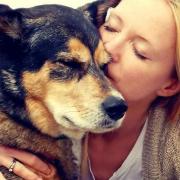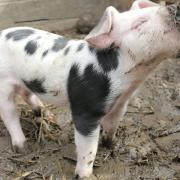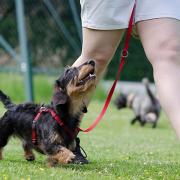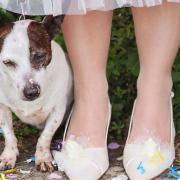Bringing a new puppy into your home can be the most rewarding chapter in you life but it isn’t without its difficulties. We speak to Chris Brierley at Cotswold RAW for his tips on choosing your puppy and helping them to settle into your home

Whether it’s your first, second, or however many dogs you’ve previously had, it’s important to carefully consider whether you and your family are prepared to welcome a new addition into your home. Choosing a puppy and settling them into your home takes careful consideration, patience and attention, and you need to ensure you’ll be able to train them properly.
The breed, and therefore size and mentality of the dog, are extremely important things to consider when deciding to bring a puppy into your home. Chris says, “All puppies are cute; wolfhound puppies are cute but then they grow up to be 70kgs. All breeds have their specific needs and that needs to be considered – ask ‘are they going to be comfortable in my home?’ ”
“I think, fortunately, we’re are in an age that people aren’t necessarily looking for pedigrees these days and there’s a much more open view for rescues and crosses.” Working alongside the Dog’s Trust, and Teckels Rehoming and Boarding in Whitminster, and a number of other fostering and rehoming charities, Cotswold RAW have seen that more and more people are supporting these dogs in need rather than obsessing over the ‘breeding line’ and Kennel Club. “I think it’s good that the attitude towards crosses has changed.”
Ensure you manage your expectations on how much exercise your dog will need. “If you’ve got a very active breed and you can’t do more than half an hour walk before work, your dog is going to become frustrated and you’re going to struggle.”

Houses and gardens need to be puppy-proofed to avoid puppies discovering a place to escape. “You’ve got to make sure your house and garden are ready for an exploring puppy, they are going to try and explore their boundaries and you need to ensure your fence is secure.”
When you bring the new dog home, you want to ensure that you’re newest addition enjoys a simple, and hopefully seamless, transition into your home. Be considerate of everybody and ensure everyone has an opportunity to bond with the dog. “Don’t leave it to one person to feed the dog all the time as that will end up creating dependency on that role – dogs are vey food-orientated.”
An introduction of a new diet should be on a stage basis; done gradually rather than overhauling what they eat immediately. As mentioned previously continuity is key for helping your puppy settle in. “If you’re attempting to introduce something that you’ve historically used, like a particular brand of food that you’ve had with other dogs, its best to do that in a staged way. Introducing a new diet gradually will ensure your puppy doesn’t become disruptive.”
If you already have dogs at home, make sure everyone is getting their own space. “Don’t assume they’re both OK in the utility room with the door shut and they can work it out. It’s important that the dog previously there has the room to go back and retract into their own space.” Chris adds, “Space gives everyone the opportunity to walk away or come together as they please.”

A puppy shouldn’t be left for long periods or isolated in any way. They would have experienced a lot interaction with their litter mates, breeders and, possibly, mum and dad too so, especially in the beginning, they need to be kept focused and stimulated. “They’re pack animals and enjoy being part of something. You do need to recreate that environment at home with interaction and play.”
Playing is a good way to bond. “They’ll get incredibly tired really quickly at the age, with whatever stimulation, a short tug of war for example, anything you can do to stimulate and play with them for short, frequent periods will help them settle and help the bond between yourself and the puppy.”
Classes and training sessions are an effective way for puppies to socialise outside the pack. Your vet, word-of-mouth, searching online and via social media are all great ways to find responsible and well-carried out training sessions.
“You will be in contact with your vet in the initial stages of having your puppy but don’t necessarily assume your vet is your only port of call. There are plenty of dog behaviourists, training classes and one-on-ones when customers have specific needs.”
Chris adds, “If you’ve got a cocker spaniel you can join cocker spaniel groups that are in your area, they will point you in the direction of responsible and well-carried out training sessions.”
Preparing for a litter yourself? “Its not to be underestimated,” says Chris. “It is a huge moment for both you and the mum. The six to eight week period requires significant resource and commitment and is not to be underestimated. It is one of the most rewarding and lovely things you can do in life but everyelse will be on the hold for those two months.”
For more advice on choosing the right puppy and helping them settle into your home, take a look at the Cotswold RAW blog. There are also plenty of articles, based upon up-to-date research, providing advice on nutrition, training and activities for your dog, including the switch to a raw diet.
Cotswold RAW dog food contains all the building blocks for a natural and biologically appropriate raw dog food diet. To find out more about what they do and their products, visit the Cotswold RAW website.

























